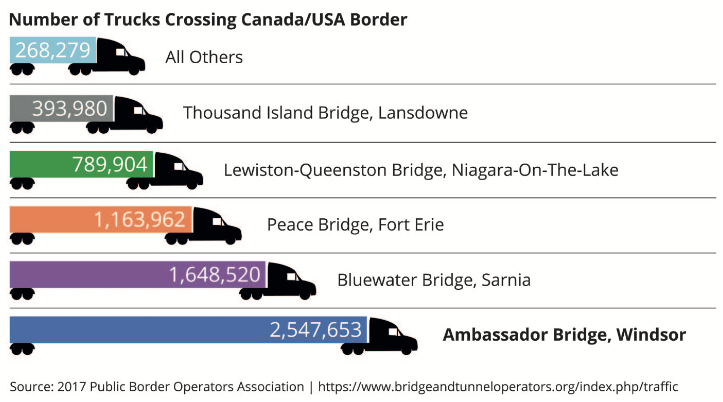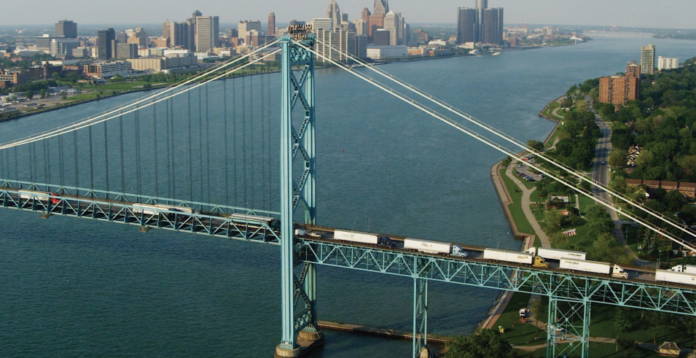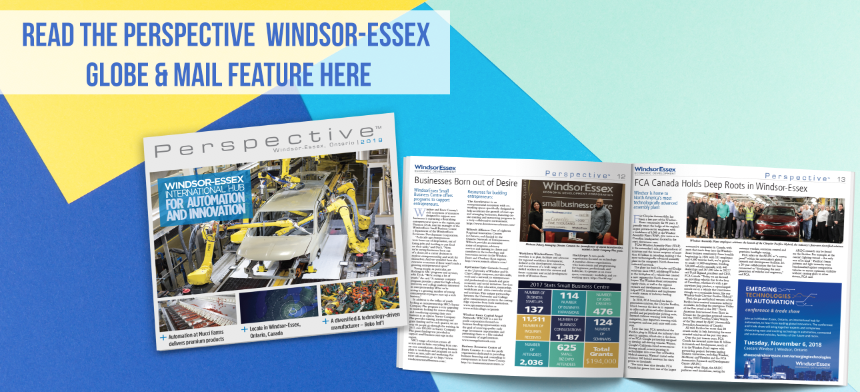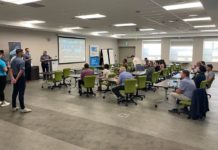Susan Anzolin is surrounded by vivid reminders of Windsor and Essex County’s areas of strengths: manufacturing, transportation and logistics, moving goods, people and services across North America.
The executive director of the Institute for Border Logistics and Security (IBLS) points to neighbouring buildings that can be seen from the front office window.
“You can see across the street there’s the FedEx building, there’s an intermodal cargo building behind the institute,” says Anzolin. And slightly farther afield, a plane is landing along a runway at the Windsor International Airport.
Established in 2013 as part of a $20 million federal government investment, the 10,000-square-foot institute, constructed in early 2016, is unique – the only facility of its kind in Canada.

“IBLS, along with the University of Windsor’s Cross-Border Institute, was designed to create a cluster of logistics and innovation in Windsor-Essex, building on the strengths of our competitive advantage, which is the border,” says Anzolin.
In 2017, this one-of-a-kind institute became a department of the Windsor-Essex Economic Development Corporation – a move that leverages the institute’s economic expertise, networks and tools. Its mandate: to help entrepreneurs and small-and medium-sized enterprises (SMEs) to work with academia, businesses, economic development associations and governments to solve problems, promote opportunities and facilitate trade and logistics efficiently, safely and securely across international borders.
“Working with the Cross-Border Institute, which does a lot of research in this area, the role is to push out the research, and support the new technology within the business community that bolsters border logistics and security,” says Anzolin.
“I think the building is quite spectacular; it’s a great asset to the community.”
The institute offers on-site resources for local businesses and their innovations. For example, there’s “a truck bay, which gives small businesses access to equipment as well as providing them with office space,” she says.
“It’s kind of a soft landing so that if you’re not ready to establish bricks and mortar you can use this space.”
A proposal awaiting funding would establish a virtual reality lab for small business to access equipment they wouldn’t normally have, Anzolin adds.
The institute also is forging partnerships, working closely with St. Clair College, the University of Windsor as well as local and cross-border business groups, including the Council of the Great Lakes Region.
The region’s growing automation and emerging technologies cluster as well as its border location are conducive to the development of new technologies, says Anzolin.
“Windsor-Essex is the best place to do it,” she says. “We have the busiest border crossing in all of Canada and one of the busiest in the world. So, we can develop technology here to promote the movement of goods, people and services … We can be leaders in terms of developing new technologies that promote the borders to be more seamless.”
And, word is getting out. “We’re in discussions with a variety of companies outside of this area to look at coming here and landing a space here because they see us as being the place to do the work towards developing automation for the border.”
IBLS is looking to support research that will transform the Windsor-Detroit crossing into a smarter border, she says. “There’s a lot of work being done on autonomous vehicles, artificial intelligence. Everything is integrated.”
In the not-too-distant future, technology will allow a customs officer to know who is coming and what’s coming before the vehicle arrives at the crossing, Anzolin says.
“So it’s really about anticipating the future and making sure we’re ready to capture those opportunities.We have to be ready,” she says. “What a great opportunity; the Gordie Howe International Bridge is being built, we have a new span for the Ambassador Bridge coming. So, now’s the time to really integrate those technologies, those processes, those systems into the infrastructure before they get built.”
If you require more information about this story or the Windsor-Essex Region, please connect with one of the business professionals at Windsor-Essex Economic Development Department who will assist you with location and investment decisions – please email info@choosewindsoressex.com or visit Choose Windsor Essex

















